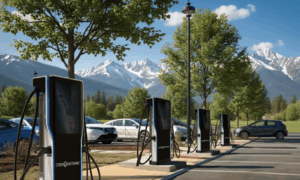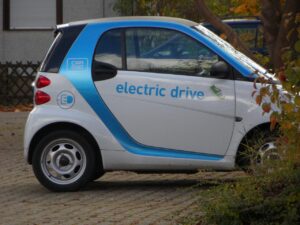
Home / EV Charging News / The Benefits of Universal Charging Solutions for EV Drivers
The transition to electric vehicles (EVs) marks a pivotal moment in the automotive industry, with a growing emphasis on sustainable transportation. One of the critical aspects supporting this shift is the development of universal charging solutions for EV drivers. These solutions offer numerous benefits, ranging from convenience and cost-efficiency to environmental sustainability. This article explores the advantages of universal charging solutions and their implications for the future of sustainable transportation.
Universal charging solutions refer to standardized charging infrastructure that accommodates various types of electric vehicles, regardless of make or model. These solutions encompass a range of charging stations, from basic home chargers to public charging networks installed in urban areas, highways, and workplaces. The key feature of universal charging is compatibility, allowing EV drivers to access charging facilities seamlessly, irrespective of their vehicle’s specifications.
One of the primary benefits of universal charging solutions is the convenience they offer to EV drivers. With an extensive network of charging stations, drivers can recharge their vehicles conveniently, eliminating concerns about range anxiety. Whether at home, work, or on the road, access to charging infrastructure ensures that EVs remain powered and ready for use. Additionally, advancements in technology enable features such as mobile apps for locating and reserving charging stations, further enhancing the user experience.
Universal charging solutions contribute to cost-efficiency for EV owners in multiple ways. Firstly, home charging stations allow users to take advantage of off-peak electricity rates, reducing charging costs compared to public charging. Moreover, as the infrastructure expands, competition among charging providers is likely to drive down prices, making EV ownership more affordable in the long term. Additionally, with fewer moving parts and lower maintenance requirements than internal combustion engines, EVs offer potential savings on maintenance and repair costs over their lifetime.
The environmental advantages of universal charging solutions are significant. By promoting the adoption of electric vehicles, these solutions contribute to reducing greenhouse gas emissions and improving air quality. EVs produce zero tailpipe emissions, making them a cleaner alternative to traditional gasoline-powered vehicles. Furthermore, universal charging infrastructure supports the integration of renewable energy sources, such as solar and wind power, further reducing the carbon footprint associated with transportation.
Universal charging solutions play a crucial role in shaping the future of sustainable transportation. As governments worldwide implement policies to phase out fossil fuel vehicles, the demand for EVs and associated infrastructure is expected to rise significantly. Investments in charging infrastructure are essential to support this transition and ensure widespread adoption of electric vehicles. Moreover, the integration of smart grid technologies and vehicle-to-grid (V2G) systems holds promise for optimizing energy usage and grid stability, further enhancing the sustainability of EVs.
The expansion of universal charging infrastructure is critical to ensuring accessibility for EV drivers. Governments, private companies, and utility providers must collaborate to establish a robust network of charging stations in both urban and rural areas. By strategically locating charging points along highways, in public parking lots, and at commercial centers, EV drivers can access charging facilities conveniently, facilitating longer journeys and promoting EV adoption among a broader demographic.
Universal charging solutions aim to simplify the charging process for EV drivers, enhancing the overall user experience. Standardized connectors and payment systems ensure compatibility and ease of use across different charging networks. Moreover, innovative features such as plug-and-charge technology enable seamless authentication and billing, eliminating the need for RFID cards or smartphone apps. By prioritizing user convenience and interoperability, universal charging solutions enhance the appeal of electric vehicles to consumers.
Despite the benefits, the widespread adoption of universal charging solutions faces several challenges. One of the primary obstacles is the upfront cost of infrastructure deployment, including installation and maintenance expenses. Governments can incentivize private investment through subsidies, tax credits, and grants to accelerate infrastructure development. Additionally, addressing concerns regarding grid capacity and stability is essential to accommodate the increased demand for electricity from charging stations. Collaboration between utilities and regulatory bodies is crucial to managing grid integration challenges effectively.
Universal charging solutions represent a pivotal component of the transition to sustainable transportation powered by electric vehicles. By facilitating convenient access to charging infrastructure, these solutions enhance the viability and attractiveness of EV ownership. Moreover, they contribute to cost-efficiency, environmental sustainability, and grid stability. Despite challenges in adoption and integration, concerted efforts from stakeholders can overcome barriers and accelerate the deployment of universal charging infrastructure. Ultimately, by investing in these solutions, we can pave the way for a cleaner, greener future of mobility.



